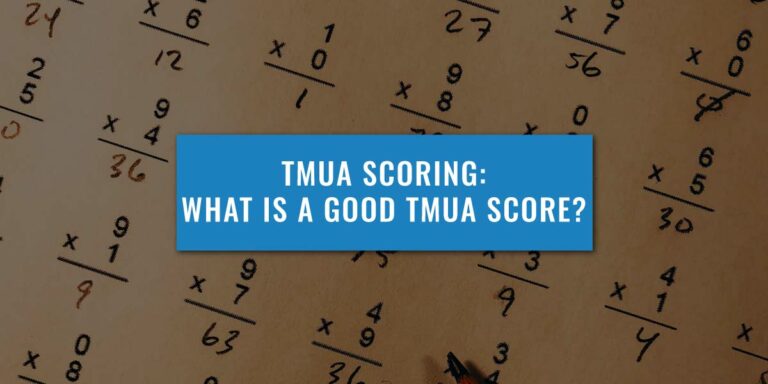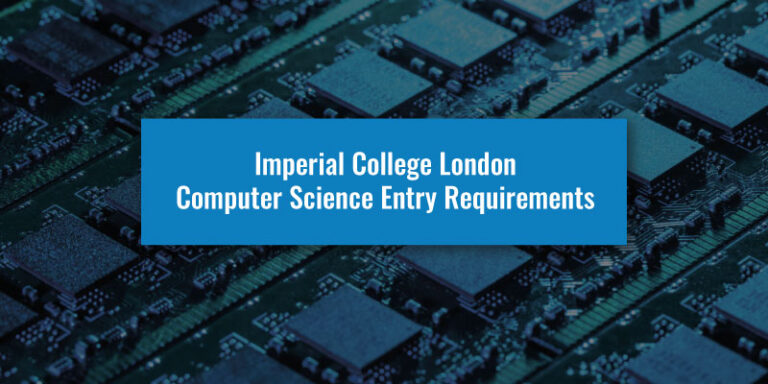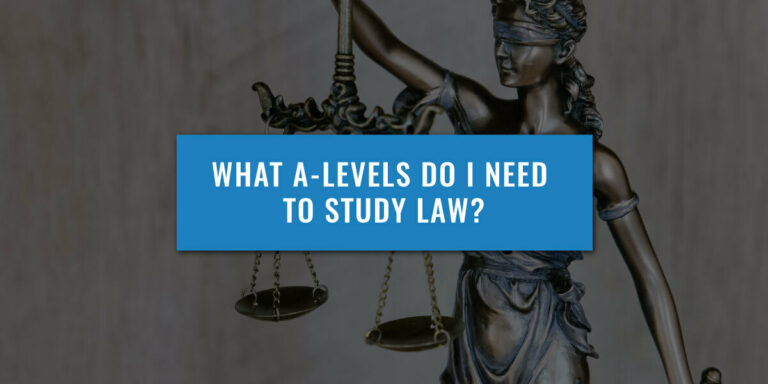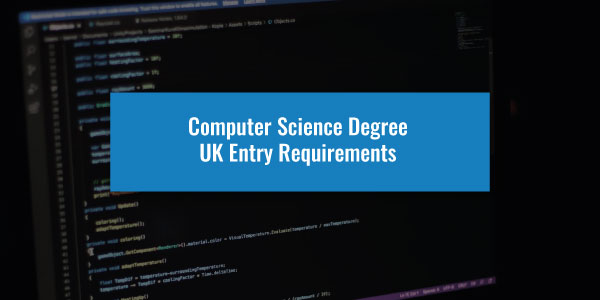For many university degrees in the UK, choosing the right A-Levels is incredibly important. Some degrees can have specific subject requirements for up to three of your qualifications, so you need to ensure you meet those requirements to get your offer. On top of that, you need to achieve the minimum grade requirements too.
Computer Science is no exception to this, being one of the most competitive degrees to apply for currently. In this guide, we’ll explore some of the common A-Level requirements for Computer Science degrees and take a deep dive into the requirements for Oxford and Cambridge, two of the most competitive Computer Sciences degrees in the UK.
A-Levels For Computer Science
To study Computer Science in the UK, most universities will require applicants to have completed 3 A-Level qualifications above a passing grade. The minimum entry requirements for courses can vary greatly, so let’s look at both ends of the spectrum:
Highest A-Level Requirements For Computer Science
For some of the most prestigious universities in the UK, including Cambridge, UCL and King’s College London, applicants with a standard offer will need to achieve final A-Level grades of A*A*A. This is a fairly common grade requirement for most courses at the universities, and these will involve subject requirements too (which we’ll look at soon).
For applicants with contextual offers, this grade boundary will usually be dropped by one grade to A*AA, though a second grade drop can occasionally happen.
Lowest A-Level Requirements For Computer Science
Among the 100+ UK universities that offer a Computer Science degree, the lowest A-Level requirement generally tends to be BCC. This is far lower than the highest requirement, but it’s fairly common to see this requirement among the courses available.
However, during clearing, these grade requirements can be lowered even further for the sake of filling places. If you didn’t achieve the necessary grades for your options, applying to universities like Gloucestershire and Canterbury Christ Church through clearing may be a viable option.
What Subjects Do You Need For Computer Science?
When it comes to choosing your A-Level subjects for Computer Science, there’s one primary subject that will frequently be required of applicants; Mathematics.
Maths is an essential A-Level to have for the vast majority of Computer Science degrees, so it’s crucial that you’re studying it. This is due to the amount of mathematical principles that need to be understood to progress in the subject.
As well as this, most courses will set a minimum grade requirement for Mathematics, usually on the higher end of the overall requirements. For example, Imperial applicants will need to achieve an A* in Mathematics.
Mathematics is the most common grade requirement, but other subjects are also sometimes required. Further Mathematics is often considered alongside standard maths and can be completed instead of it. It’s not commonly stated if this would improve your application, but it’s important to consider if you would rather study standard or advanced Mathematics.
A much rarer requirement is a scientific subject. This can be seen at the University of Manchester, which requires an A or A* in at least one scientific subject (Biology, Chemistry, Physics). As well as this, there are various subjects that are directly recommended by the universities, as well as some that would be helpful.
| Essential | Preferred | Helpful |
|---|---|---|
| Mathematics | Further Mathematics | Computing |
| Computer Science | ICT | |
| Physics | Science (Biology/Chemistry) |
So what would be the best selection of A-Levels to study for Computer Science? If you’re looking for all three qualifications to be linked to one another, then studying Mathematics/Further Mathematics, Computer Science and Physics could be considered the best choice. However, be aware that Computer Science isn’t offered at every school.
Though these subjects are ideal, the only subject that you absolutely need is Mathematics (in most cases). If you’re looking to study an A-Level that isn’t directly linked to Computer Science, that’s perfectly fine. However, try to choose a subject that has transferable skills to your chosen degree, as this will give you the best chance of earning an offer.
Alternative Qualifications
A-Levels are primarily used in England and Wales, so applicants from other countries will need to meet the minimum requirements for their equivalent qualification. The two most common are Scottish Highers and International Baccalaureates (IB).
Requirements for Scottish Highers can range from AA/AAB, at universities like Oxford, down to a minimum of CCCC. These will almost always include requirements for Mathematics or Further Mathematics.
IB requirements will usually range from 36 to 42 points overall, with requirements for Mathematics being common. Science is also sometimes required.
Early preparation is the key to a successful Computer Science application.
Writing the perfect Personal Statement, scoring highly on the TMUA or MAT and interviewing like a pro is how you get your dream Oxbridge Computer Science offer.
Discover our Computer Science Programme for comprehensive admissions support by clicking the button below to enrol and triple your chances of success.
Computer Science A-Level Requirements At Oxford
At the University of Oxford, the minimum required A-Level score for Computer Science is A*AA. This includes a requirement of an A* grade in either Mathematics, Further Mathematics or Computer Science. Oxford Computer Science saw an acceptance rate of just 6% in 2023, so these grade requirements should ideally be exceeded to remain competitive.
If your school offers a Further Mathematics degree, Oxford expects you to have taken it and achieved at least an A grade in your final exams. Oxford even states that, between 2021 and 2024, 95% of successful applicants for the course studied Further Maths.
However, the university understands that not all schools offer this A-Level, so those who aren’t able to take Further Maths aren’t excluded from applying. Support is offered through the Advanced Mathematics Support Programme (as well as the Welsh variant).
For Scottish Highers, the grade requirement is AA/AAB with an A in Mathematics. For IBs, the requirement is 39 with 766 at HL. The 7 must be for HL Mathematics. Certain BTECs are also accepted as qualifications, including Level 3 National Diplomas at a minimum grade of D. However, A-Level Mathematics will also need to be completed with an A* grade.
Grades can be considered in context, which will involve reviewing details about your background, education and financial situation. Where considered appropriate, Oxford may choose to offer a slightly lower grade requirement.
As it stands, there currently don’t appear to be any college-specific entry requirements for Computer Science, although you may be directly informed of any additional requirements by your chosen college if shortlisted.
As well as these grade requirements, you also need to be fully aware of and prepared for the other admissions requirements for Computer Science, including the UCAS application, Personal Statement, Mathematics Admissions Test (MAT) and interviews.

Access "The Oxbridge Application Vault"
- 300+ page ebook for Oxbridge Applicants
- 25 page ebook for Personal Statement
- 2h+ online course to succeed in any exam
- Online Oxbridge Success Calculator
- 12 page ebook about UniAdmissions
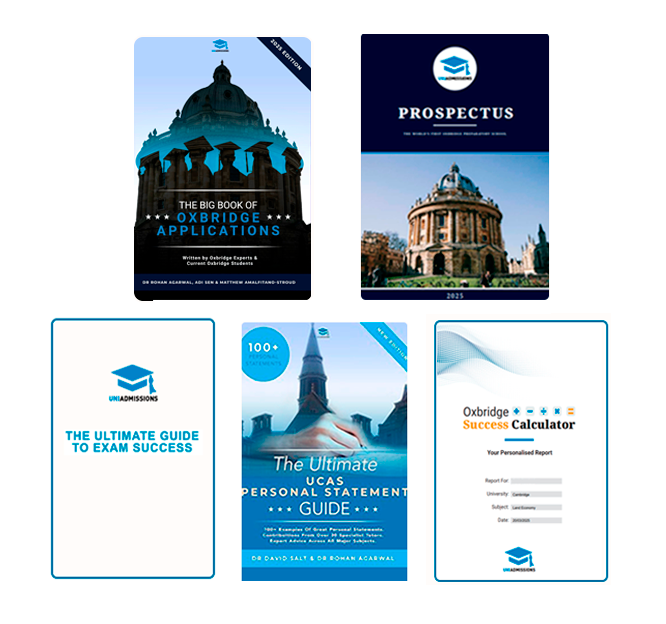
Access "The Big Book Of Oxbridge Applications" For FREE
Your A-Levels are only one part of your Oxbridge Computer Science application, but you can discover everything you need to know in The Big Book Of Oxbridge Applications, available for free here! Through over 350 pages, you will find:
- 28 example Oxbridge Personal Statements
- Over 40 admissions test practice questions
- Interviews with Oxbridge students and graduates
- Additional downloadable resources
Fill in your details below to claim your digital copy today!
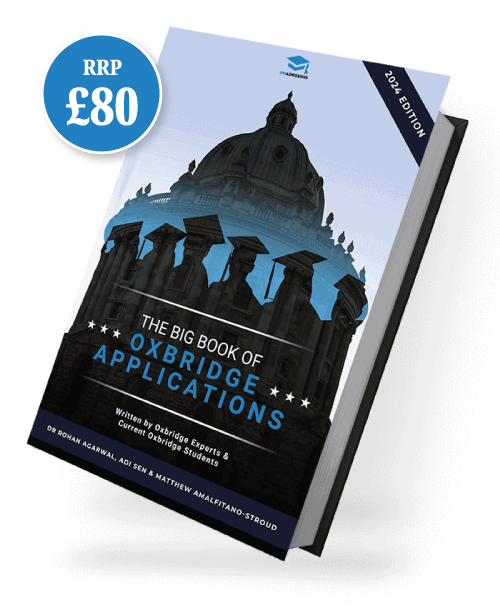
Computer Science A-Level Requirements At Cambridge
At the University of Cambridge, the minimum A-Level grade requirement is A*A*A, one grade higher than Oxford. A-Levels are required in both Mathematics and Further Mathematics at A* where possible, according to the course page. With an acceptance rate of just 7.6% in 2023, you’ll need to aim to top these requirements to have the best chance of success.
As with Oxford, Further Maths is only required for students who have the subject available to them and should be completed to AS or A-Level. Cambridge notes that, between 2018 and 2023, 97% of Computer Science students completed Further Maths at A-Level.
Beyond this, 84% completed Physics and 64% completed computing. As for achieved grades, 87% of Cambridge students actually achieved A*A*A* or higher (with an additional qualification). This means that the average successful applicant will actually need to perform better than the minimum entry requirements, which are already very high.
For applicants who don’t have access to Further Maths at their school, Cambridge also recommends support via the Advanced Mathematics Support Programme.
Applicants taking Scottish Highers will need to achieve A1, A1, A2 as a minimum, including Mathematics. Those with Its will need to achieve 41 – 42 points, including 776 with Maths. It’s noted that most international Computer Science students scored 43 points overall. Cambridge also requests that IB applicants have achieved Analysis and Approaches if available.
At Cambridge, some colleges have specific requirements for admissions beyond the minimum. These are as follows:
Downing & Lucy Cavendish
These colleges require a science as the third subject. This can be either Chemistry, Computer Science or Physics.
Churchill
A-Level: A* in Further Mathematics and A* in Chemistry, Computer Science or Physics.
IB: 7 in Higher Level Maths and 7 in one or more of Chemistry, Computer Science and Physics.
As well as these requests, other colleges may sometimes give increased offers because of strong competition within the applicant pool, poorer performance in other areas of the application and more.
Just like Oxford, you’ll also need to complete your UCAS application, Personal Statement and interviews. The admissions test for Computer Science at Cambridge is the Test of Mathematics for University Admissions (TMUA). However, applicants for Peterhouse and Trinity College will also need to complete the Computer Sciences Aptitude Test (CSAT).

Conclusion
That concludes our look at the A-Level requirements for Computer Science at university. As we’ve seen the required grade varies greatly depending on where you’re applying, with some of the top-ranked universities requiring close to perfect performance!
While these grade requirements should be used to influence your choice in university, it’s important to also look for options that appeal to you, whether it be the teaching style, facilities or surrounding area. Enjoying your time at university is crucial, but just make sure you’re applying somewhere that you could realistically be accepted to.
Wherever you decide to apply, we wish you the best of luck with your application! If you’re considering applying to Oxford or Cambridge but would like additional support with the application process, check out our Oxbridge Computer Science Programme to see how we can triple your chances of earning your offer with our proven formula for success. We also have a comprehensive guide available if you’re wanting to understand wider entry requirements for Computer Science for Oxbridge and other top UK universities.
Aiming for a career in Computer Science after you graduate? We’ll help you secure your dream Computer Science offer first.
Applying to Oxbridge is immensely competitive, and you must give yourself the best chance of success. We help you craft the perfect Personal Statement, achieve a highly competitive Admissions Test score and teach you how to Interview effectively – covering all areas of your Oxbridge application.
Discover our Oxbridge Computer Science Premium Programme today by clicking the button below.

